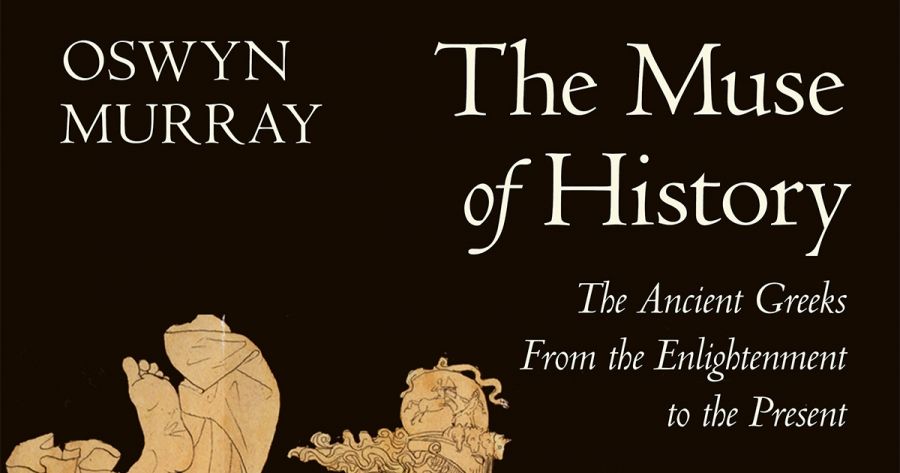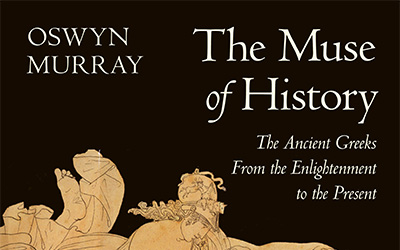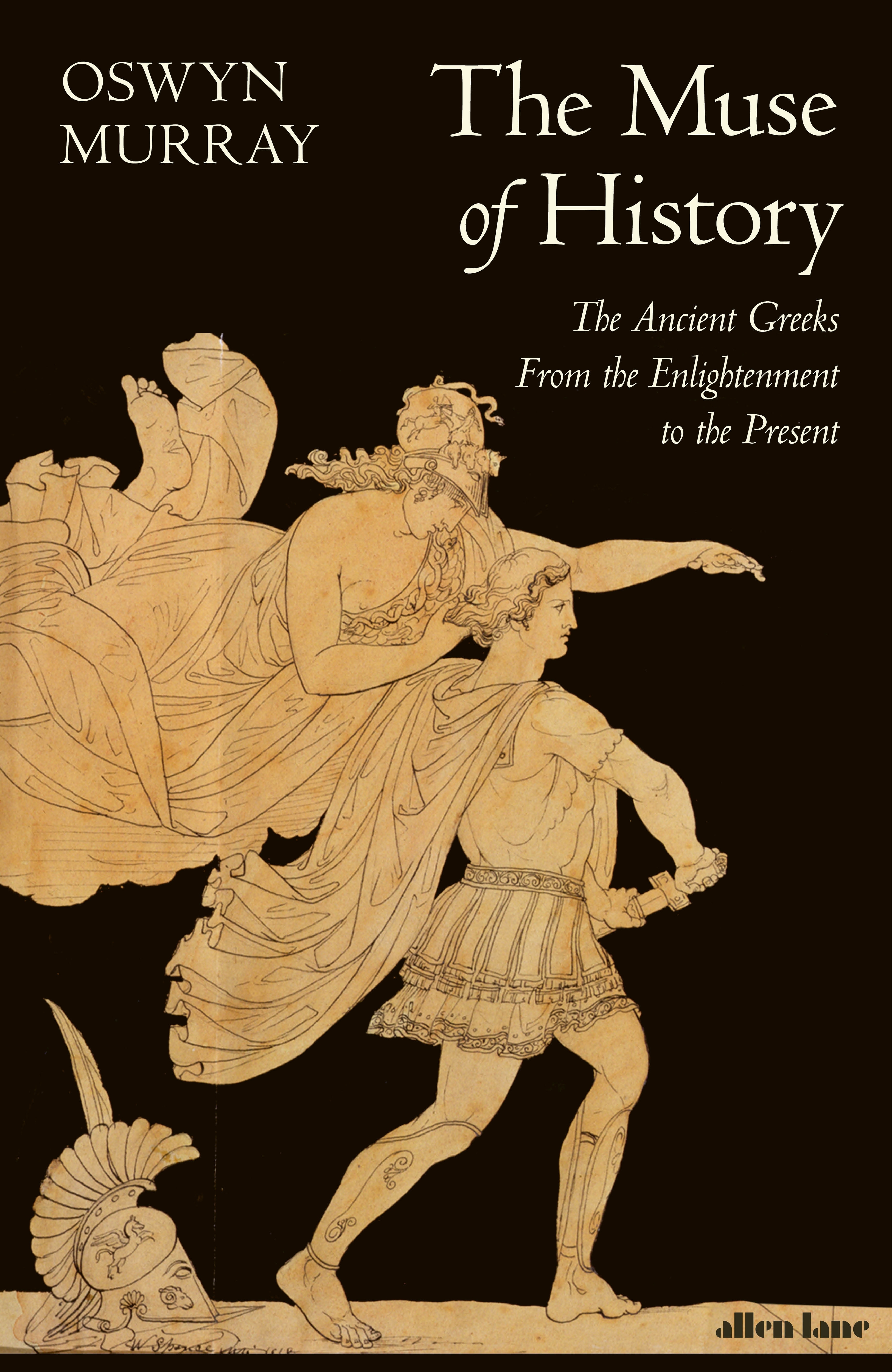
- Free Article: No
- Contents Category: Classics
- Review Article: Yes
- Article Title: Athens or Sparta?
- Article Subtitle: Ancient Greek literature through the ages
- Online Only: No
- Custom Highlight Text:
Oswyn Murray’s book The Muse of History is subtitled ‘The Ancient Greeks from the Enlightenment to the present’, but this period of some three centuries represents virtually the whole of the modern historiography of Greece. The primary reason for this is one that is easily forgotten today: from the medieval to the early modern period, Greek civilisation, with its literature and art, was mainly understood from a Roman perspective. Even the gods were known by their adopted Latin names, and in an age when everyone who went to school could read and write Latin, a relatively small number were ever fluent in Greek.
- Featured Image (400px * 250px):

- Alt Tag (Featured Image): Christopher Allen reviews ‘The Muse of History: The Ancient Greeks from the Enlightenment to the present’ by Oswyn Murray
- Book 1 Title: The Muse of History
- Book 1 Subtitle: The Ancient Greeks from the Enlightenment to the present
- Book 1 Biblio: Allen Lane, $65 hb, 528 pp
- Book 1 Cover Small (400 x 600):

- Book 1 Cover (800 x 1200):

- Book 1 Readings Link: https://www.readings.com.au/product/9780241360576/the-muse-of-history--oswyn-murray--2024--9780241360576#rac:jokjjzr6ly9m
A great revival of interest in Greek literature began with the reaction to the French ‘quarrel of the Ancients and Moderns’ in the later seventeenth century and its early eighteenth-century sequel, the ‘quarrel of Homer’; Alexander Pope’s new translation of the Iliad (1715-20), with its important Preface vindicating Homer against the quibbles of the French critics, signalled a new appreciation of Greek antiquity, and of its cultural superiority to Rome. The momentum of rediscovery, accelerated by the work of Winckelmann in art history and the practical development of modern archaeology, led to a fundamental renewal of classical philology in the nineteenth century.
The first attempts at composing a history of Greece were also made in the early eighteenth century; they already emphasised the contrast between the political systems of Athens and Sparta, but their accounts were essentially based on Plutarch’s biographies of Solon and Lycurgus respectively (the Aristotelian Constitution of Athens was not rediscovered until the late nineteenth century), and thus ultimately limited as retellings of the ancient sources. Perhaps surprisingly today, when we are accustomed to preferring what Karl Popper called the ‘open society’, most authors tended to praise the austerity and discipline of the Spartan model, and to disparage the Athenian model, whose democracy was vulnerable to manipulation by demagogues – something that we have unfortunately also found in our own time.
The preference for Sparta would disappear in the age of revolutions, at the end of the eighteenth century and especially during the great movements of reform in early nineteenth-century Britain, as well as the Philhellenism inspired by the Greek struggle for independence from the Ottoman Empire in the 1820s. But one of the first to express a new appreciation of Athens was an author who had been completely forgotten until Murray fortuitously rediscovered his work. John Gast had published a first history of Greece, in an old-fashioned dialogue form, in 1753, but after the success of Edward Gibbon’s masterpiece The Decline and fall of the Roman Empire (1776-89), he was encouraged by the publisher John Murray to undertake a more ambitious and systematic history.
A new appreciation of Greece was also fostered by other books that are little known today, like The Voyage of Anacharsis the Younger (1787) by the remarkably learned Abbé Jean-Jacques Barthélemy – the first person to decipher the ancient Palmyran (1754) and Phoenician (1758) alphabets – which, though fictional, was also intended as an introduction to the world of Greece in the fourth century bce. William Mitford’s History of Greece (1784-1810) was enormously scholarly, if idiosyncratic in style, and already reflects the beginnings of modern anthropological thinking in its imaginative use of comparative sources in other ancient or tribal cultures, although politically Mitford remained convinced that democracy could only lead to tyranny.
Another almost forgotten history was written in the age of Philhellenism by Edward Bulwer-Lytton, a man of considerable learning, although better known as a popular novelist (The Last days of Pompeii, 1836) and member of Parliament; not surprisingly, he extols Athens and criticises Sparta. This progressive preference continues in the writings of Utilitarians such as John Stuart Mill and in the monumental History of Greece by George Grote from 1846, which, as Murray observes, was ultimately published too late, after the great generation of Reform. Grote was however, among other things, the first to recognise that the democratic constitution of Athens was established by Cleisthenes rather than Solon.
The Victorian period was dominated by Grote and the German historian B.G. Niebuhr, who had written a history of Rome at the beginning of the century and had brought the new practice of textual criticism, which had evolved in scriptural studies, to historical texts. With this critical perspective, and comparing textual narratives with other kinds of evidence, including the studies of laws and customs, it began to be possible for modern historians to see beyond the version of facts and events presented by their ancient sources.
An even more fundamental step was taken by Jacob Burckhardt, best known today for his Civilisation of the Renaissance in Italy (1860), which established the method for his subsequent work on Greece, posthumously published and based on his lecture notes. Building on the new ideas of cultural anthropology that arose from the insights of J.G. Herder in the late eighteenth century, Burckhardt was less interested in the facts of Greek history than in the character of Greek culture; this led in turn to a new appreciation of the significance of the polis as a distinctively Greek institution and of the pervasive spirit of competition between individuals and cities, as well as a new understanding of the Archaic period, before the Persian Wars, as the time when the unique model of Greek civilisation was forged.
The second and shorter section of The Muse of History deals with great figures of the twentieth century, including the Australian-born Hellenist Gilbert Murray, the author’s own mentor and master Arnaldo Momigliano, many more Jewish intellectuals who came to Oxford as refugees from Nazism, as well as Ronald Syme, Moses Finlay, Fernand Braudel, Jean-Pierre Vernant, and others. The fact that Murray knew most of these people well gives this section a different tone, at once biographical and autobiographical; the reflection, meanwhile, broadens from Greek historiography to fundamental principles of integrity and criteria of truth in the writing of history.
One of the great merits of this book is the author’s sympathetic and intellectually generous rereading and reappraisal of so many authors, both older and more recent; in reproducing extensive excerpts of their writings, he allows us to form an intimate idea of their thinking and sensibility, as well as the content of their arguments. Historiography may seem a recondite and even dry subject, but Murray manages to imbue this book with the excitement of discovery as well as a humane warmth, personal commitment, and sincerity that make it unexpectedly engaging and compelling from beginning to end.


Comments powered by CComment